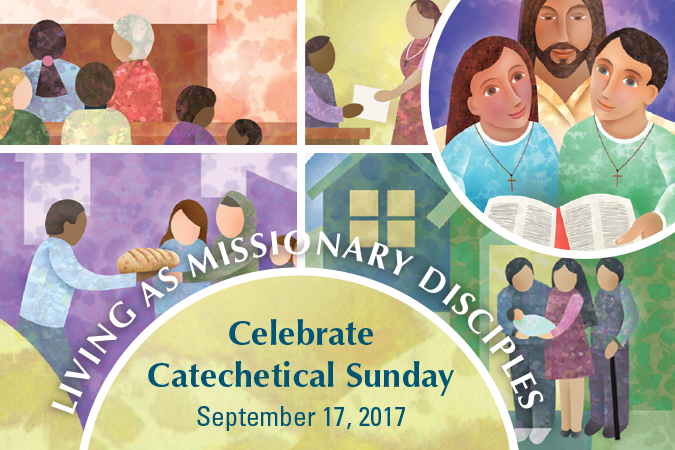
I am a Chicago Bears fan, and every year as of late, it seems as though a key player gets injured at a critical time. During this year’s preseason, one of our star offensive lineman, Kyle Long, was out with a shoulder injury. I was afraid that the “Monsters of the Midway” were in for another long and grueling season.
The faith formation year can feel just as long and grueling as a season in the NFL. Catechists are sometimes “taken out of the game” and miss class; they might get sick, they have work commitments that cannot be avoided, or they have to attend to a family emergency. That’s where I come in: I am a permanent substitute catechist for my parish’s faith formation program.
While I don’t have to worry about preparing and leading weekly sessions, being a substitute catechist has its own challenges. I do not know any of the young people, and I am unfamiliar with the dynamics of the classroom. Discipline can be a problem. The simplest way I know to overcome this challenge is to get to know the young people outside of the classroom. I take part in service projects, retreats, and social functions so that the young people recognize me when I show up in their class one day.
Another challenge I face as a substitute catechist is that I am not as familiar with the curriculum. Since I don’t have to prepare a weekly lesson, I might be tempted not to look at the materials until I have to. Young people will see that lack of preparation and might interpret it as a lack of respect—since I did not take the time to prepare for them, they will not take the time to pay attention to me.
There are two ways to overcome this challenge. First, I can attend any catechist preparation sessions my parish offers. This allows me to know the program, know the other catechists, and establish lines of communication so that I know what is going on. Second, I can take some time to familiarize myself with the session for that week. I don’t have to prepare to lead the session; I just need to know the objective of that session and how it fits in with the goals of the program. If get “called into the game,” so to speak, I will be warmed up and ready to play.
Serving as a substitute catechist can be a blessing. It allows me the opportunity to serve the young people in the Church to the extent that I can, it helps me grow in my own faith, and it gives me the gift of being a part of the family of catechists.
I hope that I will have fewer commitments in the future so that I can return to being a regular catechist—I love this ministry! And even though I cannot serve as a permanent catechist now, I can still help out when I can and when I am needed.
How might you help your faith formation program if you cannot commit to being a permanent catechist? How does your parish arrange for classes when catechists call in sick?





Be the first to comment